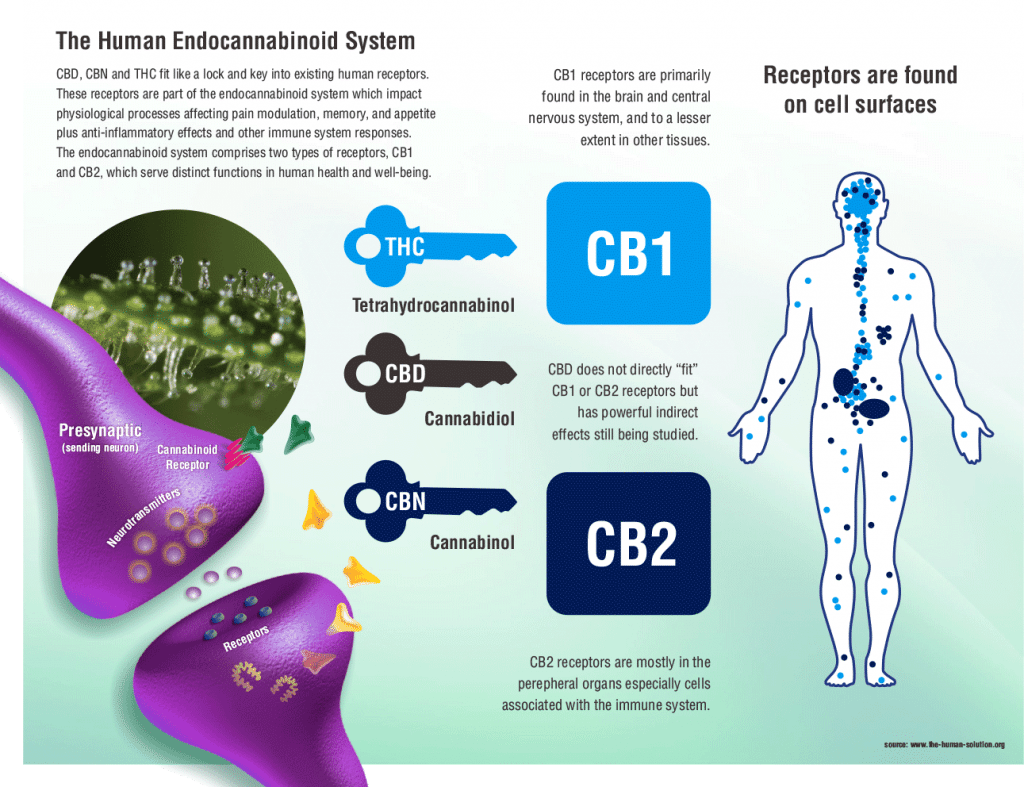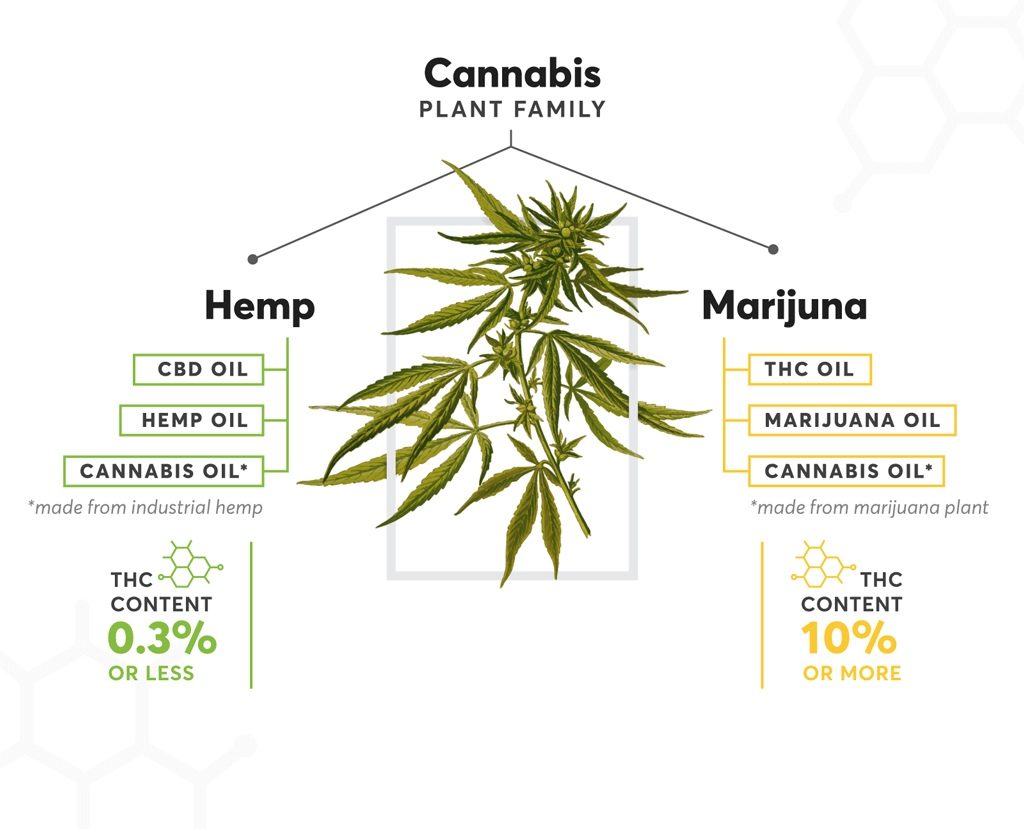7 Natural Ways to Activate Your Endocannabinoid System
Summarize

Cannabinoids are a group of closely related biologically active chemical substances capable of interacting with the cannabinoid receptors found in the human endocannabinoid system (ECS). The ECS is located in the brain and body. The main cannabinoids are THC and CBD. These are phytocannabinoids, with “phyto” meaning they come from plants.

Scientists still have a lot to learn about the human endocannabinoid system, which regulates most of the critical functions in the body. The functions include sleep, learning and memory, temperature control, and immune system response. The ECS also regulates mood, appetite, digestion, and coordination. What many people do not realize is that the ECS produces natural cannabinoids called endocannabinoids, and you can take steps to naturally activate and regulate the ECS for health and well-being.

TL;DR (Too Long; Didn’t Read):
The endocannabinoid system (ECS) consists of endocannabinoids which are naturally produced, cannabinoid receptors and enzymes. The ECS system regulates or influences many processes and functions, including appetite, memory, mood, sleep. You can naturally activate or regulate your endocannabinoid system by taking CBD, vigorously exercising, eating certain foods, taking probiotics, managing alcohol consumption and getting massages.
Cannabinoids in Plants and in the Body
Phytocannabinoids are the cannabinoids found in the various parts of the cannabis plant, including flowers, leaves, seeds and stems. The cannabis plant has about 540 chemical substances.

People still get confused about cannabis because they think of the term as meaning only marijuana that has a high amount of THC, the mind-altering cannabinoid in marijuana. The truth is that CBD and THC are the two main cannabinoids in the cannabis plant, and they come from the hemp and non-hemp plant. The hemp plant has more CBD than THC, and the non-hemp plant has more THC. This is why you read that CBD and THC come primarily from the Cannabis Sativa plant, but the hemp version is specially cultivated with less than 0.3 percent THC.
Endogenous cannabinoids are cannabinoids naturally manufactured by the body. Called endocannabinoids, they include anandamide which can be manipulated by inhibiting its degradation. Cannabidiol (CBD) does not directly activate cannabinoid receptors, but it can slow the degradation of the endocannabinoid anandamide.
Anandamide (AEA) is one of the primary messenger molecules that bind to the CB1 receptors found mainly in the brain. The other is 2-Arachidonoylglycerol (2-AG). Both help regulate systems and processes like appetite, the immune system, cognition and emotion. The ECS receptors are called CB1 and CB2. The central nervous system is where most CB1 receptors are found, with the highest levels found in the brain. The peripheral nervous system is where you find most CB2 receptors.
Balance is important. For example, it is believed that enhanced levels of anandamide are involved in drug addiction because THC and other drugs of abuse slow the natural degradation of anandamide, which leads to feelings of reward for drug use. AEA degradation results from enzyme activity in the ECS.
Too much anandamide (called the “bliss” molecule because it impacts mood and emotions), or too little anandamide, can disrupt your body’s systems. That is why scientists are studying the ability to regulate anandamide by increasing or decreasing the degradation rate.
The neurotransmitter anandamide carries messages throughout the ECS system. It plays a key role in the central and peripheral nervous systems, meaning anandamide impacts almost every process and system in the human body.
For example, researchers have found that an anandamide deficiency is linked to tension. It is just one reason you may need to upregulate cannabinoid receptors. There is a theory called clinical endocannabinoid deficiency (CED) syndrome which says CED may contribute to disorders, all of which often have unknown sources and are hard to treat.
“A common question is: Does the body produce THC? “
As mentioned, the body produces natural cannabinoids (endogenous cannabinoids). The brain does not make THC like that found in the cannabis plant, but the brain does manufacture proteins that act the same way as THC. THC and the endocannabinoid anandamide have similar chemical structures. Both interact with CB1 receptors, and both can modulate things like perception.
Natural Ways to Enhance Your Endocannabinoid System
The research on how the endocannabinoid system works and what it influences is ongoing. Though much more research is needed concerning the critical ECS, you can learn how to increase anandamide and upregulate cannabinoid receptors. The following are seven ways to boost your endocannabinoid system by increasing your bliss cannabinoids.
1. Reduce Tension
Chronic discomfoert can increase cortisol production, reducing the functioning of the ECS system by reducing the brain’s CB1 receptors. Reduce your tension and challenges, and it could improve ECS functioning.
2. Make Good Food Choices
There are natural food sources of cannabinoids. For example, foods with a good balance of omega-3 and omega-6 fatty acids can increase ECS activity. These foods include hemp oil and hemp seeds, walnuts, sardines and chia seeds, to name a few. Other foods that enhance the endocannabinoid system include the tea plant Camellia Sinensis, turmeric and dark chocolate.
3. Exercise
Exercise is good for overall well-being. A review of clinical trials has shown that high-intensity long-term exercising, like running and cycling, can help correct a CED imbalance.

4. Take CBD
Hundreds of clinical trials have found that the non-psychoactive phytochemical CBD indirectly interacts with cannabinoid receptors. It activates the TRPV1 receptors, which can lead to more anandamide production. Remember, anandamide regulates many of your body’s processes, including memory and motivation.
5. Take Probiotics
Probiotics can support the cannabinoid receptors in your gut. A study found that L. acidophilus affected the endocannabinoid system and the endogenous opioid receptors.
6. Massage
A dual-blind, randomized controlled clinical trial found that massage coupled with osteopathic manipulation may significantly increase endocannabinoids in the circulatory system. Osteopathic medicine is a holistic approach to treating the whole person and not just symptoms.

7. Limit Alcohol Consumption
Alcohol is an addictive substance that signals pathways in the brain that produce rewarding effects. Do not be misled by the word “rewarding” because, in this case, the effects can lead to compulsive and chronic use. Too much alcohol consumption can lead to a down-regulation of CB1 and 2-AG brain receptors.
Think Natural When Thinking Wellness
The endocannabinoid system is still not fully understood, but it has become clear that it is a powerful regulatory system. Researchers are increasingly finding that people may be able to manage the endocannabinoid system to address issues like improving mood and getting relaxation. When reading through the list of seven natural ways to regulate cannabinoid receptors, notice they are all healthy lifestyle choices. You can support your wellness by taking CBD, exercising, following a healthy diet and taking other common-sense steps.
Sources
- https://www.ncbi.nlm.nih.gov/pmc/articles/PMC3316151/
- https://www.ncbi.nlm.nih.gov/pmc/articles/PMC5209363/
- https://www.ncbi.nlm.nih.gov/pmc/articles/PMC6460372/
- https://www.frontiersin.org/articles/10.3389/fnmol.2017.00166/full
- https://www.ncbi.nlm.nih.gov/pmc/articles/PMC4119220/
- https://www.ncbi.nlm.nih.gov/pmc/articles/PMC5576607/
- https://nida.nih.gov/publications/research-reports/marijuana/how-does-marijuana-produce-its-effects
- https://www.ncbi.nlm.nih.gov/pmc/articles/PMC3706194/
- https://www.researchgate.net/publication/303996573_Dietary_Omega-6Omega-3_and_Endocannabinoids_Implications_for_Brain_Health_and_Diseases
- https://www.ncbi.nlm.nih.gov/pmc/articles/PMC3951193/
- https://www.ncbi.nlm.nih.gov/pmc/articles/PMC1575333/
- https://pubmed.ncbi.nlm.nih.gov/17159985/
- https://pubmed.ncbi.nlm.nih.gov/16118355/
- https://www.medicinalgenomics.com/wp-content/uploads/2011/12/Alcoholism-and-the-Endocannabinoid-System.pdf
Share this post


Ahmet Yahya
Can any blood test produce any indications to signal any kind of lacking of cannabidiols in the human body?
Michael Levin
Hi Ahmet,
There are no blood tests specifically designed to indicate a lack of CBD in the human body since our system does not naturally produce it. However, the endocannabinoid system (ECS) in the body plays a key role in regulating mood, sleep, appetite, and more. It consists of receptors that, when interacting with CBD, can influence these aspects of mental well-being.